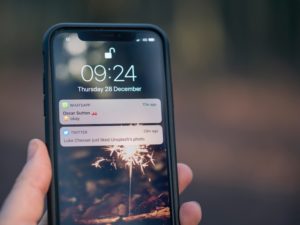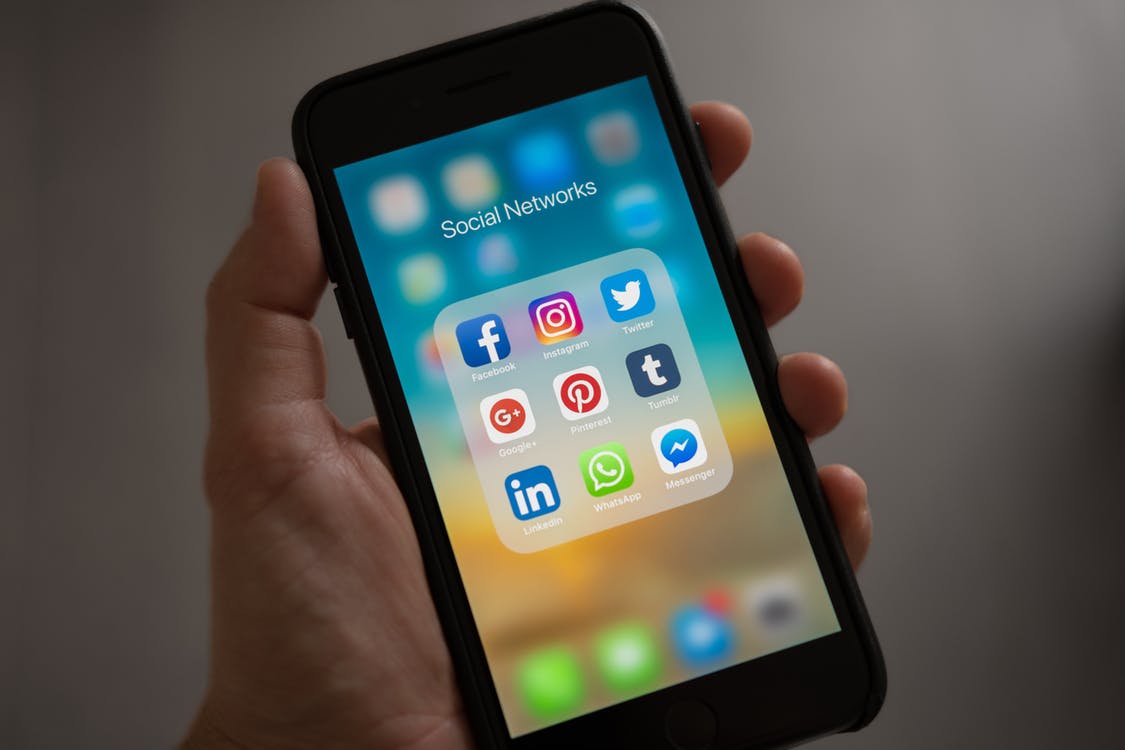3.02 billion.
It’s hard to fully fathom the quantity of this number. It represents the amount of projected monthly active social media users by 2021, according to statista.com.
Social media has consumed the masses and has become the gateway to pop culture over the course of the last two decades. In its evolution, it has unified an enormous part of the population, has had a huge role in politics and has absolutely redefined modern day advertising.
It’s had an overwhelming effect on U.S. culture in particular. The benefits are very plentiful, and I think that’s why we don’t notice our exponential indulgence.
However, social media can be very addictive, unhealthy and especially distracting; Sometimes even drawing a borderline obsession.
I’ve noticed that when some of my peers are on their phones, sometimes they don’t even hear me when I talk. Meaning their phone is capturing their near undivided attention in certain instances.
It seems as if sometimes, they resort to their phones not as devices that assist us with everyday life, but as an escape from reality into an alternate world. I’ve always labeled it as a bubble because it’s so hard to snag attention from mobile devices sometimes.
This happens to my siblings as well sometimes, not retaining a remnant of information outside of their “bubble.”
My siblings are attached at the hip with their devices, just like any other pre-teen exposed to pop culture.

I fell victim to this detrimental trend when I was 12 also. Never noticing until they received phones the toxic behavioral effect it had on children.
When children lose access to these items, they usually pout and cry and desperately try anything they can to get them back. If they realize they can’t, they begin looking for actions or activities to fill the void of time and satisfaction it leaves.
As a kid, I often wondered what that feeling was that I always desired when I would play video games, watch shows or events and play sports. I never thought that it could be constantly replicated over the course of the day.
After several years of education and wisdom, accompanied by some academic journals and research, I now am familiar with the chemical produced by the brain known as dopamine.
It’s the feeling that gives us the essence of reward and satisfaction. It also motivates us to replicate the behaviors that warranted the release of dopamine.
We have unlimited access to this feeling of accomplishment as long as we have a charged battery.
It proves very dangerous to the mental process and explains why so many, including myself, subconsciously look to our phones to fill all the empty space in our life.
From an early age, I was amazed by the idea of being connected to the world via an electronic rectangle. Since I was twelve years old, I’ve constantly used my phone to fill any free time that arises and have resorted to it in awkward social environments without even pondering on whether or not if it’s healthy.
We look to our phones without even thinking about it because we are programmed to be motivated to seek reward and positive outcomes.
According to a Harvard “Science In The News” blog, positive feedback from peers, messages from loved ones and success in games open the same “dopaminergic reward pathways” as certain drugs do.

Every single notification could be an influx of dopamine.
It’s not natural and the human brain is not used to having instant dopamine available at this rate, especially for a child. We’re starting to give our children smartphones and devices at younger ages.
It’s slowly getting to the point where children have to be constantly entertained, and it’s gradually changing the course of humanity starting with the youth.
Now in this generation, from the time kids are four, they are taught to keep themselves distracted and entertained with games and friends on a screen.
They aren’t put in the same social environment as kids before them. The world of social media almost becomes their social environment and they get used to interacting over a screen.
As they grow up they’re slowly losing touch with modern communication, affecting the way they socially interact and network amongst a large group and in society itself.
I’ve met several parents who don’t understand why their kids can’t order food simply because they’d have to talk to a stranger. I’ve met kids who are terrified to approach another human being.
I full heartedly believe that this is directly related to being raised in the era of social media.
According to the Harvard blog once more, 73 percent of us have awakened without our phone only to experience a unique state of panic. I think that they have become such a huge part of our lives, that we feel like our connection to the rest of the world is gone if the phone is.
This feeling of anxiety was never common before the world of mass media and in my opinion, is amplified greatly by being introduced to mass social media platforms at a very young age.
I have struggled with these same issues as a child raised with the internet. But fortunately, I’ve always been a pensive person so for the most part, I questioned the things that I was consuming.

In my opinion, it’s up to us as the people to use social media very carefully, consume it critically and apply it to the lives of our children delicately.
Social media has its massive benefits. For example, its mass network used to link people who would’ve never met before, and its ability to deliver a message or story to the entire online world. It’s amazing thinking about how many individuals you can reach with the touch of a button.
However, it can be very dangerous to the future of the American social landscape.
In 2019, I think social media has replaced religion as “the opium of the masses.”
Jeff Allen
Reporter

